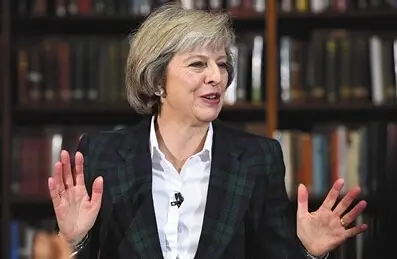Competition is fierce in the voice-activated technology space, with more than 60 companies in China currently working with US-based Conexant Systems, an audio technology player, to introduce voice-activated intelligent devices. E-commerce heavyweight Alibaba is trying to take the early lead in the next tech frontier with its latest creation, the "AliGenie 2.0."
This is the Chinese company's voice-activated personal assistant that can also do one thing the competitors can't – see.
This echoes what Alibaba AI Labs' general manager, Chen Lijuan, told CGTN: "The main highlight of this upgrade is that we have given visual capability to the smart speaker. This is a first in the market. Even the best-selling smart speaker, Amazon Echo doesn't have this capability."
CGTN's Jenny Cortes Ybanez interviewing
Alibaba AI Labs' general manager, Chen Lijuan.
The AliGenie 2.0 operating system given the name has been installed in the original Tmall Genie device, is targeted to children and the elderly to widen its appeal. It comes with image recognition, object detection, and if you scan your book, it can even read it for you.
Clearly the way you interact with technology is changing and developing rapidly. And this innovation is great, provided you can speak Mandarin.
AliGenie 2.0 can only communicate in Chinese and is only officially available in China – the two differences that set it apart from its main outside competitor, the Amazon Echo. Something that has not changed from Alibaba's original model. And when we questioned this, general manager Chen Lijuan said it's because they're only focusing on Chinese markets.
Trying out the AliGenie 2.0 during the launch.
"The Chinese market is a very diverse one which has many dialects – there's the Shanghai dialect and Cantonese. So at the moment we are focusing on developing support for different Chinese dialects," Chen explained.
And there were also challenges along the way during the development stages of the project according to the director of Alibaba AI Labs, Du Haitao. "The biggest challenge was to make laboratory technology compatible with a broader range of everyday objects. Commercialized technology should be easy for our users to learn. The device shouldn't require any specific gesture to operate and only be able to recognize certain objects. So we had to refine and re-adapt our technology."
Alibaba's voice-activated personal assistant that can now see, will be officially released on April 20, 2018.
(CGTN)
 简体中文
简体中文

